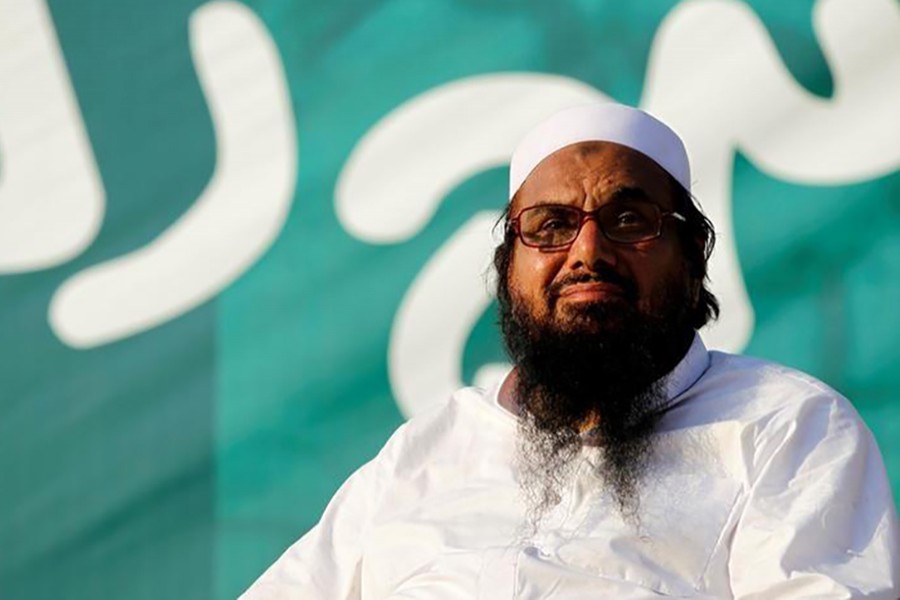Pakistani cleric Hafiz Saeed, who is accused by the US and India of masterminding the 2008 Mumbai attacks, has been released.
Saeed, who carries a $10 million US bounty, had been under house arrest in the city of Lahore since January.
A court this week ordered his release, rejecting the government's arguments that he was a threat to public safety.
The co-ordinated attacks by gunmen in Mumbai left more than 160 dead. Saeed has denied any involvement.
The cleric was released in Lahore, in north-eastern Pakistan, late on Thursday evening, the BBC reports.
"India has always levelled allegations of terrorism... but (Lahore) High Court decision has proved that all of India's propaganda are false," Saeed said in a video message issued after his release.
The decision to put Saeed under house arrest in January was seen as a response to actions by US President Donald Trump's White House against nations deemed linked to terrorism.
The cleric founded the Pakistani-based Lashkar-e-Taiba (LeT) militant group in the 1990s and, when that was banned, revived a much older organisation, Jamaat-ud-Dawa (JuD) in 2002.
Saeed maintains JuD is a Islamic welfare organisation, but the US says it is a front for LeT.
In a rare interview in 2014, Hafiz Saeed told the BBC he had nothing to do with the Mumbai attacks, calling evidence against him "just propaganda" by India.
"The people of Pakistan know me and they love me. No-one has tried to approach the American authorities to get this bounty. My role is very clear, and God is protecting me."
India accuses Saeed and his organisation of carrying out several militant attacks on its territory.
Pakistan has maintained there is no evidence to put him on trial.
Saeed was detained for three months after LeT was accused of carrying out the attack on the Indian parliament in 2001.
In August 2006, he was held for activities which the government said were "detrimental" to its relations with other governments. He was released several months later.
In 2008, he was again put under house arrest, this time following the Mumbai attacks.
The Pakistani government later acknowledged that "part" of the conspiracy to attack Mumbai did take place on its soil, and that LeT had been involved.
Several arrests were made in Pakistan in connection with the attacks, but no criminal charges were brought against Saeed. He was freed some six months later.


